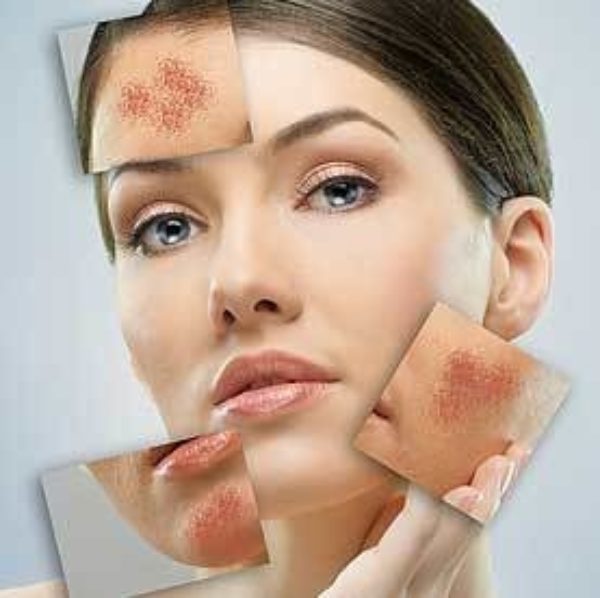Is Tretinoin safe for long term use in skin ageing?
12/5/22
Renova and Retin-A are sometimes hailed as miracle products that promise youthful, blemish-free, smooth skin to anyone from the age of 15 through to 70. However long-term use of Tretinoin, the generic name for these products, does not come without long-term issues some of which are under-stated and rarely reported.

What is tretinoin?
Tretinoin also known as retinoic acid is a prescription strength form of synthetic vitamin A that is used by doctors to treat acne and sun damaged skin. It comes in various brand names such as Retin-A and Renova. Other prescription forms of topical retinoids include Tazorac and Differin.
What harm does Tretinoin do to the skin?
- It makes the skin significantly more vulnerable to UV damage
- It causes contact irritant and photosensitivity reactions
- It damages the skin’s barrier
- It increases chronic inflammation which in turn disrupts barrier function
- Its use in one study has been linked to premature death
Is Tretinoin a good way to treat skin ageing?
Continual application of prescription strength retinoid to reduce the signs of skin ageing is neither scientifically justified nor desirable. Skin ageing is a cosmetic issue and not a disease so it is imperative that any treatment is safe.
Is my skin more sensitive to the sun if I am on high strength retinoids?
The use of prescription strength retinoid makes the skin significantly more UV sensitive. UV is the most important factor in causing skin ageing and making the skin more vulnerable to sunlight isn’t desirable. The FDA advises that anyone using Tretinoin or similar high strength retinoids must use daily SPF.
Does high strength retinoid damage the skin?
Chronic use of prescription retinoid significantly disrupts the function of the external skin barrier. A healthy skin barrier, functioning at its optimum, is critical for good skin health. Barrier disruption, the resultant penetration of external elements and skincare ingredients trigger a destructive cycle of chronic inflammation and further barrier damage. Abnormalities of skin barrier function can be detected months after a prescription strength retinoid have been discontinued.
What are the side effects of high strength retinoids?
Prescription retinoids are known to induce contact irritant and photosensitivity reactions. These symptoms include local skin irritation, peeling, burning sensation, redness, itch and dry skin and are thought to be produced by an increase in local inflammatory molecules induced by part of the retinoid molecule.(1*)
Chronic Tretinoin use is linked to premature death
The chronic use of Tretinoin has been linked to premature death. A study designed to investigate whether continuous use of the prescription retinoid reduced the incidence of skin cancers had to be terminated early due to an excess of deaths in the patients receiving the Tretinoin.(2*) The main cause of death was respiratory related and lung cancers. It has been postulated that the Tretinoin was being absorbed into the body and circulating to the lung where it altered levels of signalling molecules responsible for inflammation and cell division.(3*)
What is the best strength of retinol for my skin?
There is good evidence to show that the use of skin friendly retinols are very effective at improving the signs of skin ageing without risking the undesirable effects of prescription retinoids. Multiple independent clinical trials have demonstrated both their efficacy and safety.
Advice on retinol near me?
For further information or a consultation with one of our therapists please contact us. We are available for telephone or email consultations and with clinics based in Chelmsford in Essex, Sawston in Cambridge, Upper Wimple Street in central London,Leamington Spa in Warwickshire and Belfast in Northern Ireland we have a clinic near you.
- *Retinoids in the treatment of skin ageing: an overview of clinical efficacy and safety. Siddharth Mukherjee et al Dec 2006 https://www.ncbi.nlm.nih.gov/pmc/articles/PMC2699641/
- *Topical Tretinoin Therapy and All-Cause Mortality Martin A. Weinstock, MD, PhD, Stephen F Bingham, PhD, Robert A Lewis, PhD et al. JAMA Dermatology January 2009 https://jamanetwork.com/journa...
- *Topical Retinoids: Another piece for the Retinoid-Cigarette-Lung Cancer Puzzle Journal of Thoracic Oncology Volume 1, Number 7, Sept 2006 https://www.jto.org/article/S1556-0864(15)30391-9/fulltext